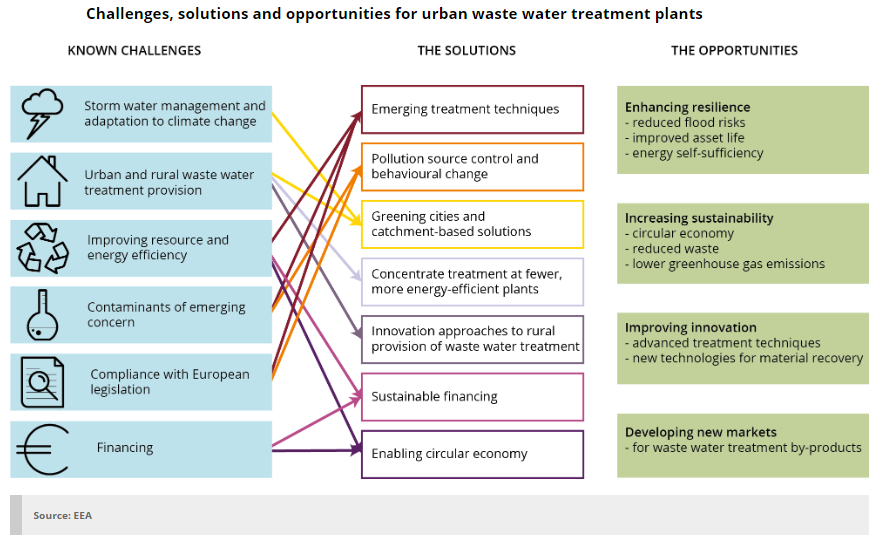European Environment Agency calls for more investment in EU urban wastewater treatment plants
- October 24, 2019
- Posted by: administrator
- Category: Environmental, Investment and Finance, Technology & Innovation, Europe

A new briefing from the European Environment Agency (EEA) says more investment is needed to make urban waste water treatment plants fit to meet the difficult challenges posed by the impacts of climate change, as well as addressing the presence of antibiotics and other micro-pollutants in waste water.
Much has already been done in recent decades to improve waste water treatment, according to the EEA briefing ‘Urban waste water treatment for 21st century challenges’. The proportion of households connected to treatment facilities varies across Europe, from 97% in western and central Europe, to around 70% in southern, south-eastern and eastern Europe
However, the Agency says that urban waste water treatment now needs to address challenges like climate change, changes in population and newly emerging pollutants.
Extreme weather events linked to climate change are bringing heavier and more frequent rainfall in some areas, but water scarcity in others, affecting how well storm sewers and treatment plants operate. Excessive rainstorms can overwhelm and overload sewer systems and lead to overflows at treatment plants, while a lack of rainfall can lead to problems in collection and treatment of sewage.
According to the EEA, such challenges are now adding to those routinely addressed by local authorities and water utilities, including financing construction, maintenance, operation and upgrades, as well as sourcing and retaining suitably skilled staff to deliver the necessary improvements in waste water treatment.
The EEA briefing also notes that antibiotics and other excreted pharmaceuticals are increasingly being found in waste water. The chemicals are among those forming a cocktail mix of chemicals, which cannot be easily tackled by many treatment plants, as they require costly, more stringent and energy-intensive treatment techniques.
Sustainable solutions and investments are key
The briefing notes that energy costs and scarce resources are reasons to promote water efficiency. In addition, they provide an opportunity for treatment plants to contribute more to recycling and reusing water and recovering materials like phosphorus, which can be collected during the treatment cycle.
The briefing cites some examples of investments already being taken across Europe to improve waste water treatment resilience, with the use of retention ponds and rainfall reservoirs to manage water flows from flash floods, or in reusing water that has been treated and cleaned.
Click here to read Urban waste water treatment for 21st century challenges in full
